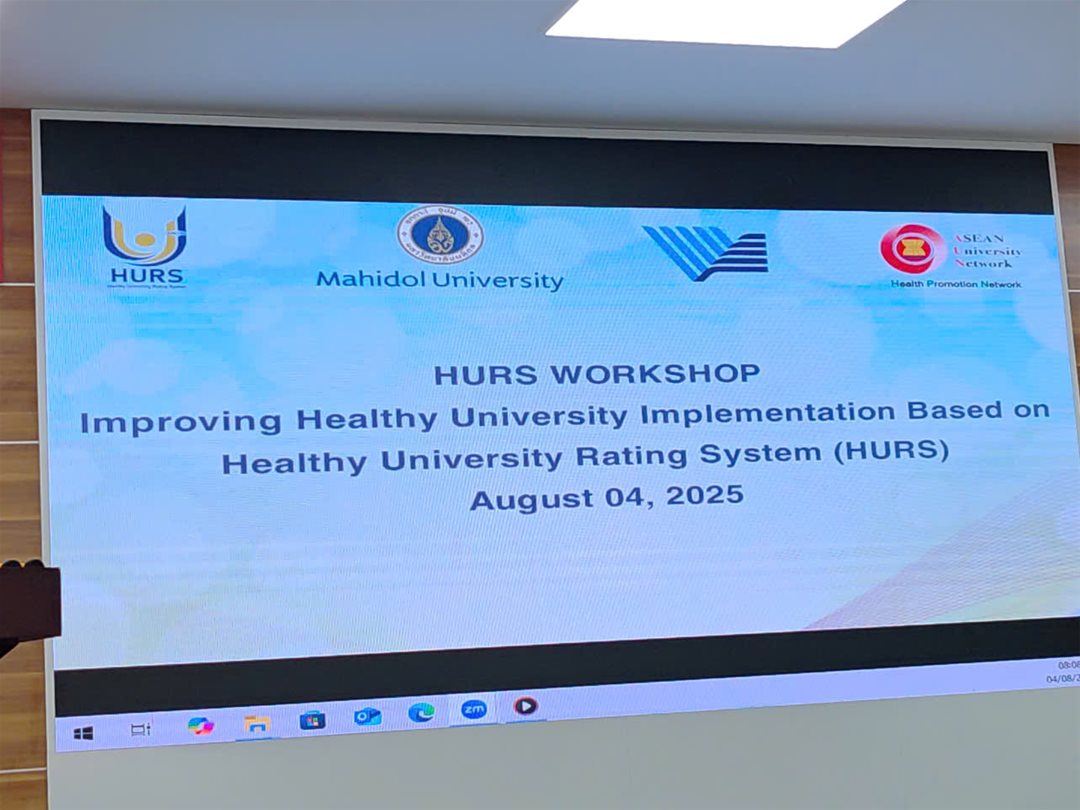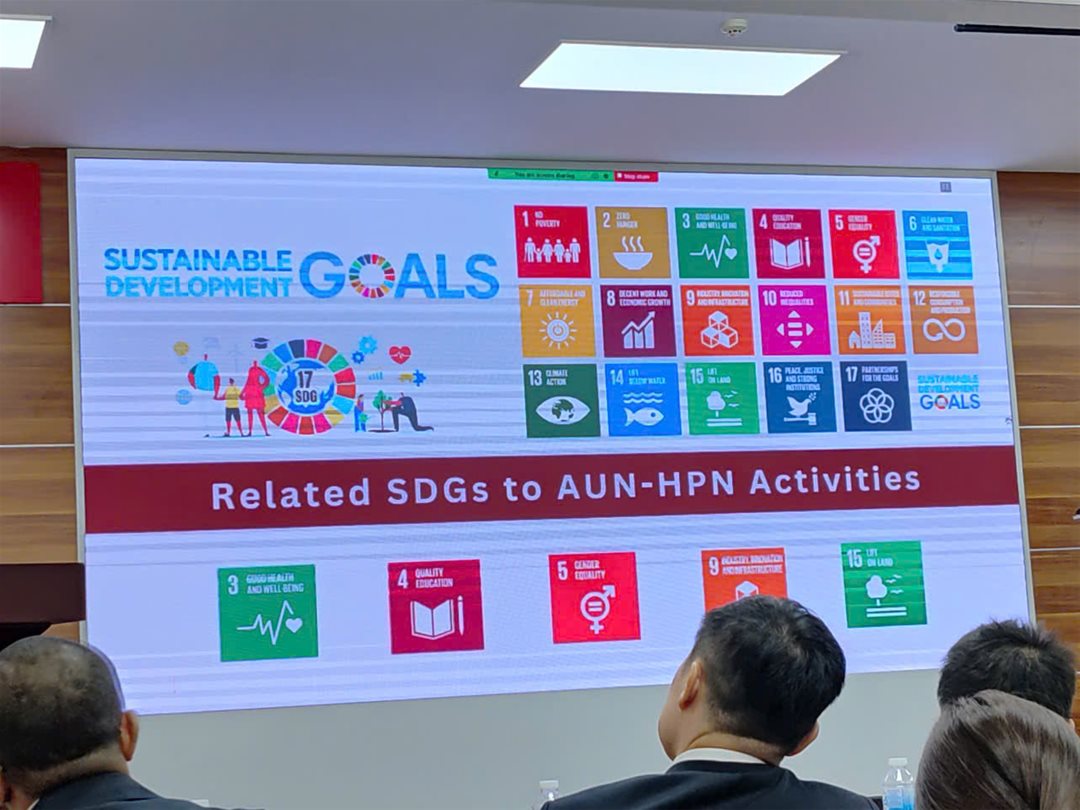News
LHU attends international workshop on Improving healthy university implementation based on healthy university rating system AUN-HURS
On August 4, 2025, a representative from Lac Hong University (LHU) attended an international workshop in Ho Chi Minh City focusing on the implementation of the Healthy University Rating System (HURS). The event convened leading experts, university leaders, and policy-makers from across the ASEAN region to strengthen regional collaboration and accelerate the integration of Sustainable Development Goals (SDGs) into higher education systems.

ASEAN Collaboration Toward Healthy and Sustainable Educational Ecosystems
Held at Hall I, University of Science – Vietnam National University Ho Chi Minh City (VNUHCM), the workshop titled “Improving healthy university implementation based on healthy university rating system AUN-HURS” was jointly organized by VNUHCM and Mahidol University (Thailand).
LHU was represented by Dr. Le Phuong Truong, the Head of the Office of Educational Testing and Quality Assurance, who participated in the workshop with the aim of expanding institutional partnerships and aligning with innovative, sustainability-oriented quality frameworks.
The event commenced with keynote addresses by:
- Assoc. Prof. Thunwadee Suksaroj: Director of ASEAN Institute for Health Development, Mahidol University, Executive Director of AUN-HPN
- Dr. Nguyen Quoc Chinh, PhD., Director of Center for Educational Testing & Quality Assessment, Viet Nam National University Ho Chi Minh City
-
Assoc. Prof. Dr. Thanapan Laiprakobsup, Deputy Executive Director of ASEAN University Network (AUN)
-
Prof. Piyamitr Sritara, MD, FRCP, President of Mahidol University
Throughout the day, participants engaged in discussions on the role of the ASEAN University Network – Health Promotion Network (AUN-HPN), the Healthy University Framework (HUF), and the evolution of HURS – a holistic and practical framework for assessing campus health, well-being, and sustainability.

Knowledge Sharing and Strategic Regional Engagement
The afternoon panel session featured contributions from the ThaiHealth Promotion Foundation, the Thai University Network for Health Promotion (TUN-HPN), and a notable presentation by Dr. Nguyen Quoc Chinh on VNUHCM's journey "from green universities to healthy campuses."
Moderated by Assoc. Prof. Dr. Piyapong Janmaimool (Deputy Director for Strategy and International Relations, ASEAN Institute for Health Development, Mahidol University and Deputy Director of AUN-HPN Secretariat), the panel provided a platform for universities to share best practices and challenges in advancing international sustainability standards in higher education.
Dr. Chinh’s presentation emphasized core components directly aligned with key United Nations Sustainable Development Goals, including:
-
SDG 3 – Good Health and Well-being
Focus: Physical and mental health services; campus safety; health promotion environments -
SDG 4 – Quality Education
Focus: Lifelong learning opportunities; inclusive and supportive learning environments -
SDG 5 – Gender Equality
Focus: Gender-inclusive policies; female participation and leadership in education -
SDG 9 – Industry, Innovation, and Infrastructure
Focus: Adoption of smart technologies and innovative governance in campus development -
SDG 15 – Life on Land
Focus: Green infrastructure, biodiversity preservation, and ecological education
By participating in this workshop, LHU gained insights into internationally recognized performance metrics and is now well-positioned to incorporate HURS standards into its strategic roadmap, thus advancing its contributions to THE Impact Rankings.
A Strategic Step Towards Comprehensive University Sustainability
LHU’s involvement marks not only a strategic move in academic quality enhancement but also a reaffirmation of the university’s long-term commitment to sustainable development in education.
Looking ahead, LHU aims to promote regional cooperation projects, strengthen student well-being initiatives, and cultivate learning environments that are inclusive, resilient, and ecologically responsible—key pillars in building a truly sustainable and impactful university.
“A healthy university is where every member is holistically cared for—physically, mentally, and environmentally. This is no longer a trend, but a responsibility.”
— Dr. Le Phuong Truong, Head of Educational Testing & Quality Assurance Office, Lac Hong University
SDG3 # SDG4 # SDG5 # SDG9 # SDG15

